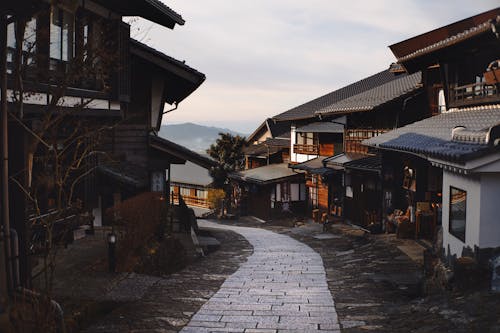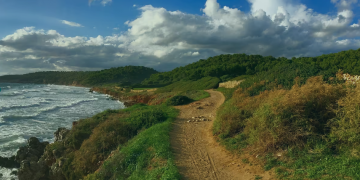
Traveling offers more than just a chance to see new sights—it provides an opportunity to deeply engage with different cultures and traditions. True cultural immersion goes beyond visiting tourist attractions; it involves understanding, participating in, and respecting the local way of life. This comprehensive guide will explore how to fully experience local traditions, offering practical tips and insights to enrich your travel experiences. By the end of this article, you will be equipped with the knowledge to engage meaningfully with diverse cultures and create memorable and authentic travel experiences.
Understanding Cultural Immersion
Definition and Importance
Cultural immersion refers to the process of fully engaging with and understanding a local culture through direct participation. Unlike surface-level tourism, which often involves visiting well-known landmarks and resorts, cultural immersion involves:
- Learning Local Customs: Understanding the norms and values that shape daily life.
- Participating in Local Activities: Engaging in traditional practices, festivals, and daily routines.
- Building Relationships: Connecting with local people on a personal level to gain deeper insights.
The importance of cultural immersion lies in its ability to foster respect and appreciation for diverse ways of life. It enhances your travel experience by providing a more nuanced and meaningful understanding of the places you visit.
Benefits of Cultural Immersion
Engaging deeply with a local culture offers several benefits:
- Enhanced Travel Experience: Gain a richer, more meaningful travel experience by engaging directly with local traditions.
- Personal Growth: Develop greater empathy, understanding, and adaptability by stepping outside your comfort zone.
- Stronger Connections: Build lasting relationships with local residents and fellow travelers.
Preparing for Cultural Immersion
Research and Education
Before embarking on your journey, it’s essential to educate yourself about the culture you’ll be experiencing:
- Study the Culture: Read books, watch documentaries, and follow reputable travel blogs about the destination.
- Learn the Language: Familiarize yourself with basic phrases and greetings to facilitate communication and show respect.
- Understand Social Norms: Research local customs, etiquette, and cultural sensitivities to avoid unintentional offenses.
Respect and Open-Mindedness
Approach your cultural immersion with respect and an open mind:
- Be Open to Differences: Embrace cultural differences and be willing to adapt to local customs.
- Show Respect: Always approach local traditions with respect and sensitivity.
- Avoid Assumptions: Refrain from making assumptions or judgments based on your own cultural background.
Engaging with Local Traditions
Participating in Festivals and Celebrations
Festivals and celebrations are vibrant expressions of local culture and provide an excellent opportunity for immersion:
- Research Local Festivals: Look up local festivals and events happening during your visit. Participate in traditional celebrations to experience local customs firsthand.
- Join in Activities: Whether it’s a dance, parade, or food festival, actively participate in the activities to fully engage with the local culture.
- Respect Traditions: Follow local customs and guidelines during festivals to show respect and appreciation.
Exploring Traditional Cuisine
Food is a central aspect of any culture and offers a delicious way to experience local traditions:
- Dine at Local Establishments: Eat at local restaurants and street food vendors to sample authentic dishes.
- Learn About Ingredients: Understand the significance of different ingredients and cooking methods used in local cuisine.
- Attend Cooking Classes: Join a cooking class to learn how to prepare traditional dishes and gain insights into culinary practices.
Engaging with Art and Craft
Art and crafts reflect the cultural heritage and creativity of a community:
- Visit Local Markets: Explore local markets to see traditional crafts and artwork.
- Participate in Workshops: Take part in workshops to learn traditional crafts, such as pottery, weaving, or painting.
- Support Local Artists: Purchase handmade crafts and artwork to support local artisans and preserve cultural traditions.
Building Relationships with Locals
Engaging in Community Activities
Participating in community activities helps build connections and understand daily life:
- Volunteer: Join local volunteer programs to contribute to community projects and interact with residents.
- Attend Local Gatherings: Visit community centers, local events, and social gatherings to meet locals and engage in daily activities.
- Stay with Locals: Opt for homestays or guesthouses run by local families to experience daily life and culture up close.
Practicing Cultural Sensitivity
Building respectful relationships with locals requires cultural sensitivity:
- Ask for Permission: Always seek permission before photographing people or participating in ceremonies.
- Listen and Learn: Be attentive to local customs and listen to locals’ perspectives and stories.
- Avoid Stereotypes: Challenge stereotypes and preconceived notions about the culture you’re experiencing.
Overcoming Challenges
Navigating Language Barriers
Language barriers can pose challenges but can be overcome with some preparation:
- Learn Basic Phrases: Familiarize yourself with essential phrases and greetings.
- Use Translation Apps: Utilize translation apps to assist with communication.
- Seek Help from Locals: Don’t hesitate to ask for help or clarification when needed.
Dealing with Cultural Differences
Adapting to cultural differences requires patience and flexibility:
- Stay Open-Minded: Approach cultural differences with curiosity and a willingness to learn.
- Ask Questions: Inquire about customs or practices you don’t understand to gain clarity.
- Respect Boundaries: Be mindful of local norms and boundaries to avoid misunderstandings.
Reflecting on Your Experience
Documenting Your Journey
Documenting your experiences helps reflect on your cultural immersion journey:
- Keep a Journal: Write about your experiences, observations, and interactions to capture your journey.
- Take Photos: Capture moments that reflect local culture, but always seek permission before photographing people.
- Share Your Stories: Share your experiences with friends, family, and on social media to spread awareness about different cultures.
Evaluating Your Impact
Reflect on how your cultural immersion has impacted you and the local community:
- Assess Personal Growth: Consider how your experience has influenced your perspectives and understanding of other cultures.
- Evaluate Your Contribution: Reflect on how your presence has impacted the local community, both positively and negatively.

Cultural immersion offers a transformative travel experience that goes beyond superficial sightseeing. By engaging deeply with local traditions, participating in festivals, exploring traditional cuisine, and building meaningful relationships with locals, travelers can gain a profound understanding and appreciation of diverse cultures. Approaching cultural immersion with respect, curiosity, and an open mind will not only enhance your travel experiences but also contribute to fostering cross-cultural understanding and respect. As you embark on your next journey, remember that true immersion involves embracing the essence of the places you visit and connecting with their people on a deeper level.











